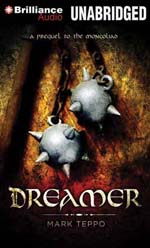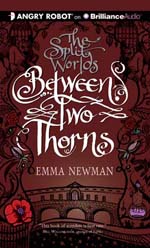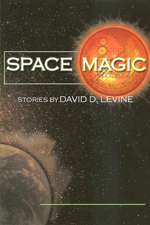
 Dreamer: A Prequel to the Mongoliad (Foreworld Saga)
Dreamer: A Prequel to the Mongoliad (Foreworld Saga)
By Mark Teppo; Performed by Luke Daniels
Publisher: Brilliance Audio
Publication Date: 25 September 2012
[UNABRIDGED] – 1 hour, 25 minutes
Themes: / crusades / hallucinaion / pacifism / monks / mongoliad /
Publisher summary:
During the Fifth Crusade, the bloody siege of Damietta grinds to a stalemate and a young Christian soldier begins having visions… Raphael of Acre, a young initiate of the Shield-Brethren, becomes a war hero during a vicious battle for control of a Muslim stronghold. One of his companions, Eptor, is wounded in the battle and falls under the influence of strange hallucinations. When a superior plots to manipulate Eptor’s visions into war propaganda, Raphael struggles between duty to the cause and duty to his faith. Unable to reconcile his roles as Christian and soldier, Raphael seeks out an unlikely source of counsel — the great pacifist Francis of Assisi. Part of the Foreworld Saga, Dreamer confronts the paradox of using sword and fist in an effort to spread a message of humility and compassion.
Like Sinner earlier this year, Dreamer: A Prequel to the Mongoliad is a prequel to the main books in The Foreworld Saga. We once again see Raphael, this time without Andreas, well before the events in The Mongoliad: Book One.
This story written by Mark Teppo is less plot-driven than the previous books in the series. Instead, it recounts a part of Raphael’s past, and uses the writing to drive home some important themes/things to think about. The story is really two stories–one in Raphael’s present (1244 or so) and one in his past (1219 in the battle of Damietta in the 5th Crusade). Raphael, you may remember, is a sworn knight, and participates in the battle against the Muslims during the Crusades. One of his brothers takes a vicious blow to the head during the battle and word gets out that, as he’s recovered, he’s had visions/hallucinations that seem to be prophetic. One of Raphael’s superiors in the battle would like to use these visions to twist the truth and turn the tides of the battle, with Raphael acting as the “witness” to the prophecy. Raphael is obviously torn between his dual loyalties–that to morality and that to his superiors.
Some years later, he is still feeling the heavy weight of his decision. He seeks out St. Francis of Assisi–a pacifist–as a counselor. This is the “second timeline” of the story, Raphael’s recounting of his tale to the non-violent brotherhood and Assisi himself. This is where a second morality question is presented, the difficulty of being both Christian and a soldier. Early on, Raphael reminds us that as a Christian, he is to love his fellow man. He also reminds the peaceful brothers that the Muslims have a saying much like the Christian “peace be with you,” even if they don’t believe in the same God. Of course, as a soldier, it’s his duty to go where he is commanded, to fight for what’s “right.”
I usually like my stories to have a bit more plot than this one did, but I found myself enjoying the background and insight into Raphael’s character. I’m not sure I would have liked this story if I hadn’t read other (more action-y) books in the series, hadn’t already been introduced to Raphael. So if you are going to read this, I definitely recommend reading at least Sinner: A Prequel to the Mongoliad first.
As usual, Luke Daniels did a fine job with the narration. I was able to put in my headphones, lay back in my recliner, and relax as I let the story wash over me. Unlike The Mongoliad: Book One, there weren’t too many characters with odd-sounding names in this book, making it easier. I’m looking forward to going back into the main Foreworld saga, onto The Mongoliad: Book Two.
Posted by terpkristin..

 Space Magic
Space Magic The Elephant Vanishes: Stories
The Elephant Vanishes: Stories Rebellion (Star Force #3)
Rebellion (Star Force #3) A Wild Sheep Chase: A Novel
A Wild Sheep Chase: A Novel